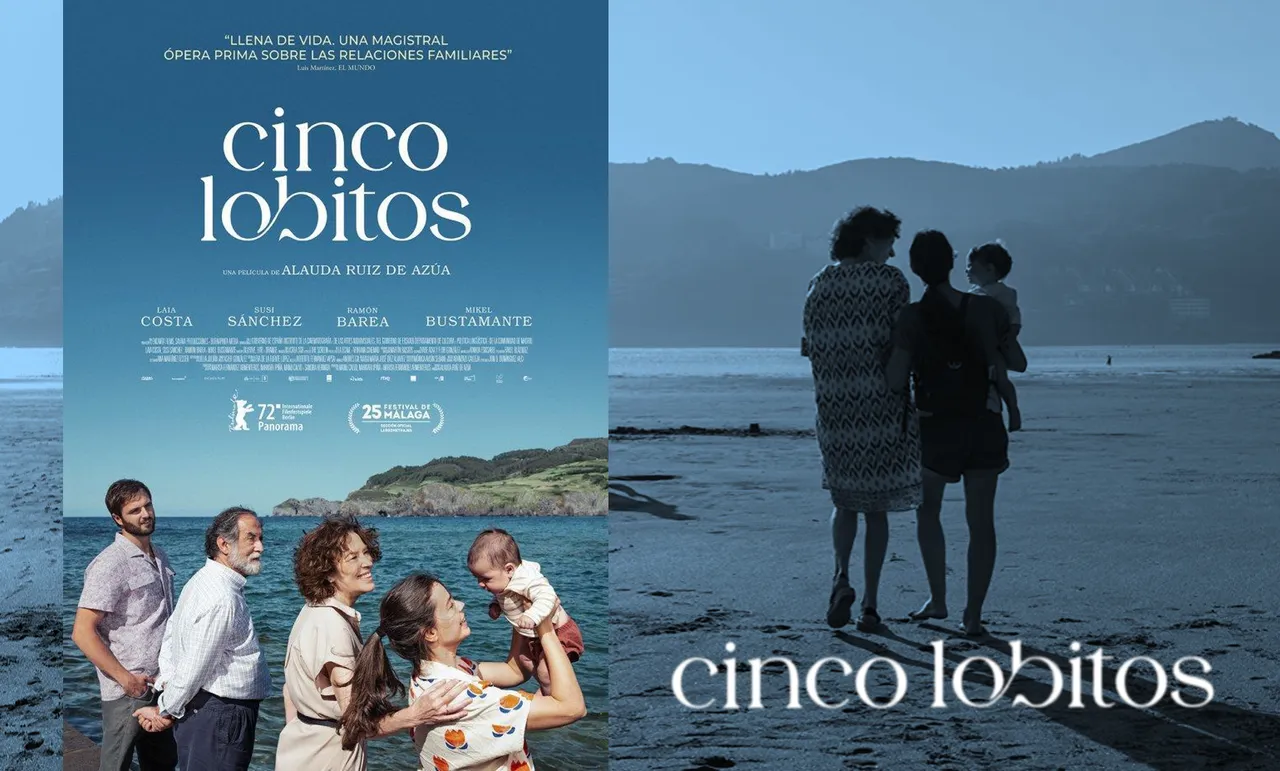

I became a mother for the first time 14 years ago. Sophi, my oldest daughter, was born by cesarean section, it took me a little over two hours to recover before I could hold her in my arms for the first time. Few will know the pain caused by a cesarean section, it is a 15 cm wound in the pelvis. Walking with that wound a couple of hours after leaving the operating room is an ordeal, but the emotion of seeing and feeling the being that was inside you for 38 weeks, becomes a natural analgesic against the pain. I will never forget that first encounter, I was blissful, happy... as happy as I was scared.
From that moment on, my life was no longer entirely mine, my priorities changed, and my world turned 180 degrees. What used to be mine no longer belonged to me, every second was at her service, every breath, every step, every action, everything, everything only made sense because of her.
48 hours after she was born, the first test, the first scare, she choked and wasn't breathing. That episode made me run to the emergency room with Sophi in my arms, I went up and down stairs with the ability I had at 27 years old until they gave her first aid. It was just a scare, a scare for a first-time mother, but I didn't leave until I made sure she was okay. When I returned home, I noticed my pajamas were bloody, and my wound, which I had completely forgotten about, had lost a couple of stitches. Incredibly, before that event, even taking a single step hurt a lot, but that day I ran and didn't even feel it.
Since then, I have lived through many anxieties, not only with Sophi, but also with Samu, and in all of them, I have asked heaven that before something happens to my children, it happens to me first. That first scare, 48 hours after becoming a first-time mother, immediately put me in my mother's shoes. I then remembered all the times my mother had to run with me because I was sick, and I was sick much more often than normal. Only then could I understand the immense anxiety she must have felt the many times I fainted as a child, or when I broke a rib for inventing things, or any of the many times one of my fevers stole her sleep and peace.
I said it back then, and today that I am a mother of two, I repeat it with greater certainty: "One learns to be a child when one becomes a parent."
Me convertí en madre por primera vez hace 14 años. Sophi, mi hija mayor, nació por cesárea, tardé poco más de dos horas en recuperación antes de poder tenerla por primera vez entre mis brazos. Pocos sabrán el dolor que causa una cesárea, es una herida como de 15 cm en la pelvis. Caminar con esa herida un par de horas después de salir de quirófano es un calvario, pero la emoción de ver y sentir al ser que durante 38 semanas estuvo dentro de ti, se convierte en analgésico natural ante del dolor. Ese primer encuentro jamás lo olvidaré, estaba dichosa, feliz… tan feliz como aterrada.
Desde ese instante mi vida dejó de ser por entera mía, mis prioridades cambiaron, mi mundo giró 180º. Lo que antes era mío ya no me pertenecía, cada segundo estaba a su servicio, cada respiro, cada paso, cada acción, todo, todo tenía sentido solo por ella.
48 horas después de nacida, la primera prueba, el primer susto, se ahogó y no respiraba. Ese episodio me hizo correr a urgencias con Sophi en brazos, subí y baje escaleras con la habilidad que se tiene a los 27 años, hasta lograr que le dieran los primeros auxilios. Fue solo un susto, un susto de primeriza, pero de allí no me fui hasta asegúrame que ella estuviese bien. Cuando regresé a casa noté mi pijama ensangrentada, mi herida, la que olvidé por completo, había perdido un par de puntos de sutura. Increíblemente, antes de ese evento dar un solo paso me dolía un mundo, ese día corrí y ni lo sentí.
Desde ese día hasta hoy, he vivido muchas angustias, no solo con Sophi, también con Samu, y en todas le he pedido al cielo que antes de pasarle algo a mis hijos, me pase primero a mí. Ese primer susto, 48 horas después de convertirme en madre primariza, me puso de inmediato en los zapatos de mi mamá. Recordé entonces las tantas veces que mi madre tuvo que salir corriendo conmigo porque me enfermaba, y vaya que me enfermaba con mucha más frecuencia de la normal. Solo entonces pude entender la angustia tan inmensa que ella debió sentir las muchas veces que me desmayé siendo niña, o cuando me fracturé una costilla por andar inventando vaina, o cualquiera de las tantas veces que una de mis fiebres le robó el sueño y la paz.
Lo dije aquella vez, y hoy que soy madre de dos, lo repito con mayor certeza: se aprende a ser hijo, cuando se es padre.

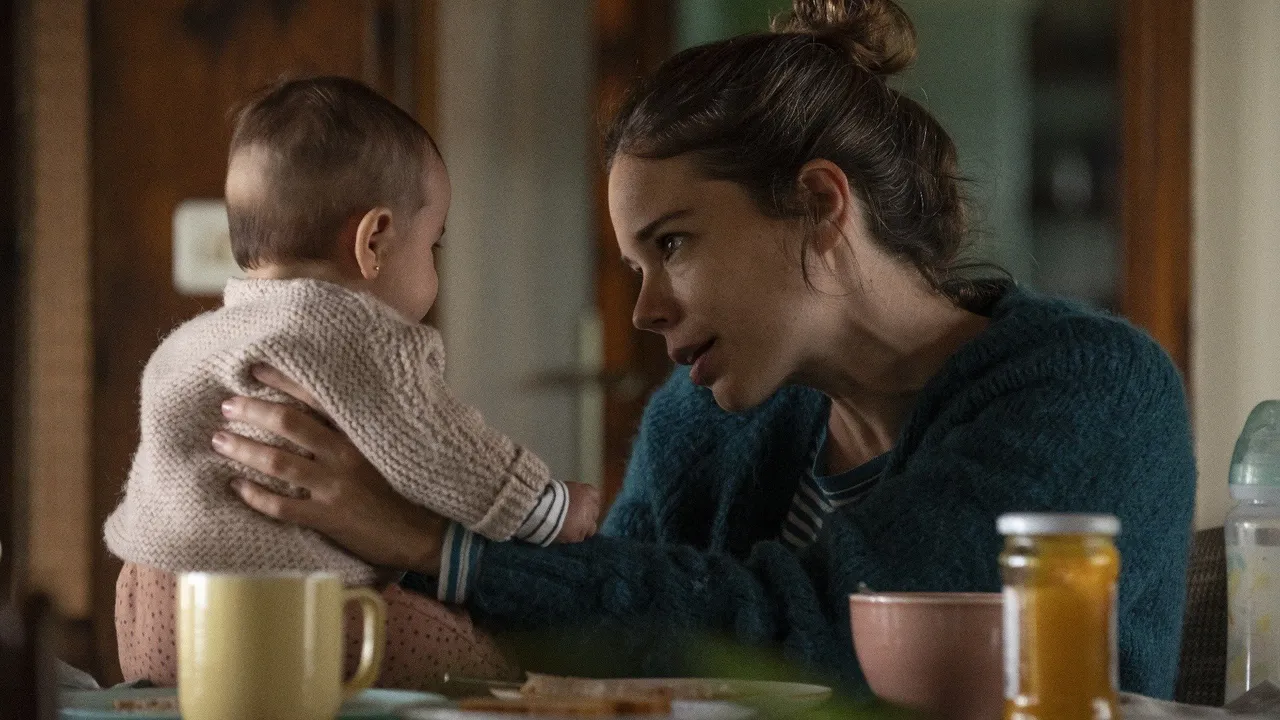

I tell you all this because it was impossible not to relive those moments while watching Lullaby, the Spanish production that achieved 11 nominations for the 2023 Goya Awards, including Best Film.
Lullaby portrays with absolute naturalness the reality of being a mother for the first time, especially being so in this era so different from the one lived by our mothers. It portrays then that need we feel to make everyone believe that we can and that everything is okay when in reality we are full of fear, exhausted, tired, frustrated for not being able to calm a cry, feeling misunderstood because we are the ones who sleep the least in the process, envying the sleep of others and hating our partners for the simple fact that they cannot breastfeed.
That accumulation of insecurities, that contained fear of the unknown, blinds us in recognizing that they (the family, the partner) are there, but in their just measure, in the role that corresponds to each one, it's just that our bond and primary responsibility with our children is superior.
Les cuento todo esto, porque fue imposible no revivir esos momentos mientras veía Cinco Lobitos, la producción española que logró 11 nominaciones a los Premios Goya 2023, incluyendo la de mejor película.
Cinco Lobitos retrata con absoluta naturalidad la realidad de ser madre por primera vez, sobre todo, serlo en esta época tan distinta a la que vivieron nuestras madres. Retrata entonces esa necesidad que sentimos de hacerle creer a todos que si podemos y que todo está bien, cuando en realidad estamos llenas de miedo, agotadas, cansadas, frustradas por no saber calmar un llanto, sintiéndonos incomprendidas por ser nosotras las que menos duermen en el proceso, envidiando el sueño de otros y odiando a nuestras parejas por el simple hecho de que ellos no pueden amamantar.
Ese cúmulo de inseguridades, ese miedo contenido a lo desconocido, nos ciega en reconocer que ellos (la familia, la pareja) si están, pero en su justa medida, en el rol que le corresponde a cada uno, es solo que nuestro vínculo y responsabilidad primaria con nuestros hijos, es superior.

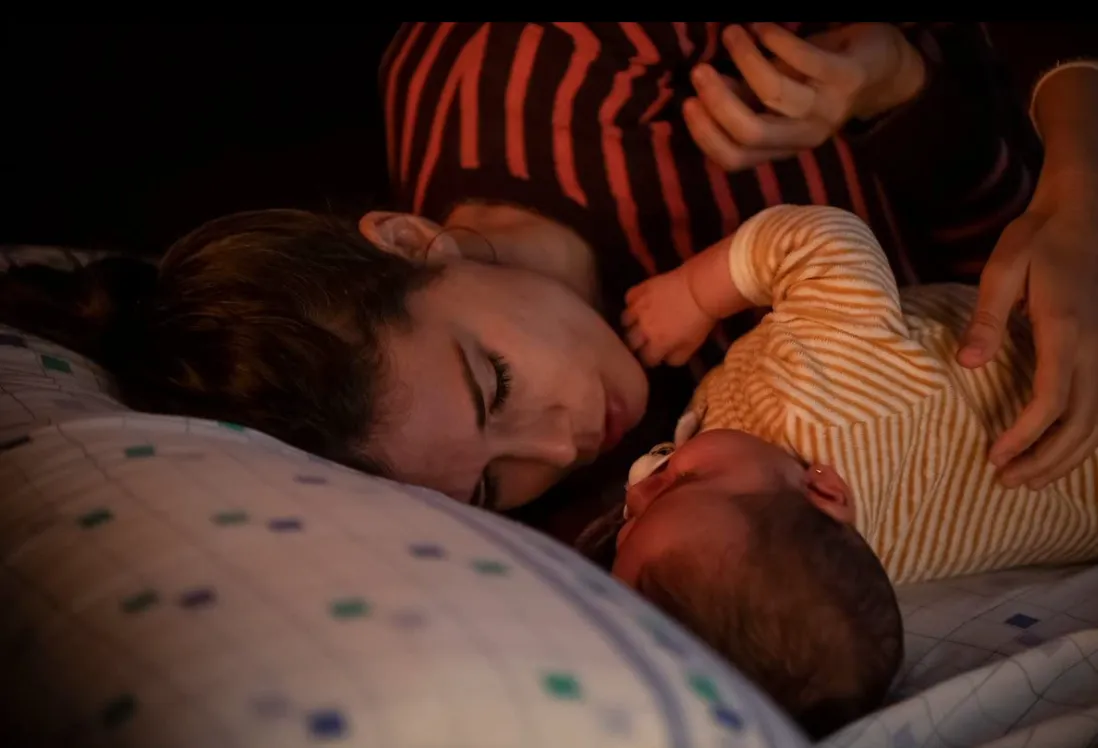

Amaia, the main character of this story, is precisely in that trance that arises from the happiness of being a mother, from the fear of not doing it right, from the sensation of taking on the responsibility of raising a child alone, from the frustration of feeling like she is giving up her old life and earned independence. She has just had her first daughter, her parents come to help her as much as possible in the first days, but then they must return, just like in real life. Later, her husband has work commitments that make him frequently absent from home, so Amaia has to deal with her baby alone while learning to be a mother.
At a breaking point, she asks for help from her parents and decides to go live with them for a while. She returns to a house that no longer belongs to her for many years, even though her room is still the same as she left it decades ago. That is her parent's house, who like everyone else, have their own routine, their own burdens, and their own truths... truths and realities that Amaia is unaware of. In some way, she is an intruder who unintentionally disrupts their daily life.
Amaia, el personaje principal de esta historia, está precisamente en ese trance que nace de la felicidad de ser madre, del miedo a no hacerlo bien, de la sensación de asumir sola toda la responsabilidad que conlleva criar un hijo, de la frustración de sentir que renuncia a su vieja vida y a su independencia ganada. Ella acaba de tener a su primera hija, sus padres vienen a ayudarla en lo posible los primeros días, pero luego deben regresar, tal cual pasa en la vida real. Luego, su marido tiene compromisos laborales que lo hacen ausentarse con frecuencia de casa, así que Amaia tiene que lidiar sola con su bebé mientras aprende a ser mamá.
En un punto de quiebre, pide ayuda a sus padres y decide irse a vivir con ellos una temporada. Vuelve a una casa que ya no le pertenece desde hace muchos años, aunque su habitación sigue siendo la misma que dejó hace décadas. Esa es la casa de sus padres, que como todos, tienen su propia rutina, sus propias cargas y sus propias verdades... verdades y realidades que Amaia desconoce. En cierto modo, ella es una intrusa que irrumpe inadvertidamente su cotidianidad.

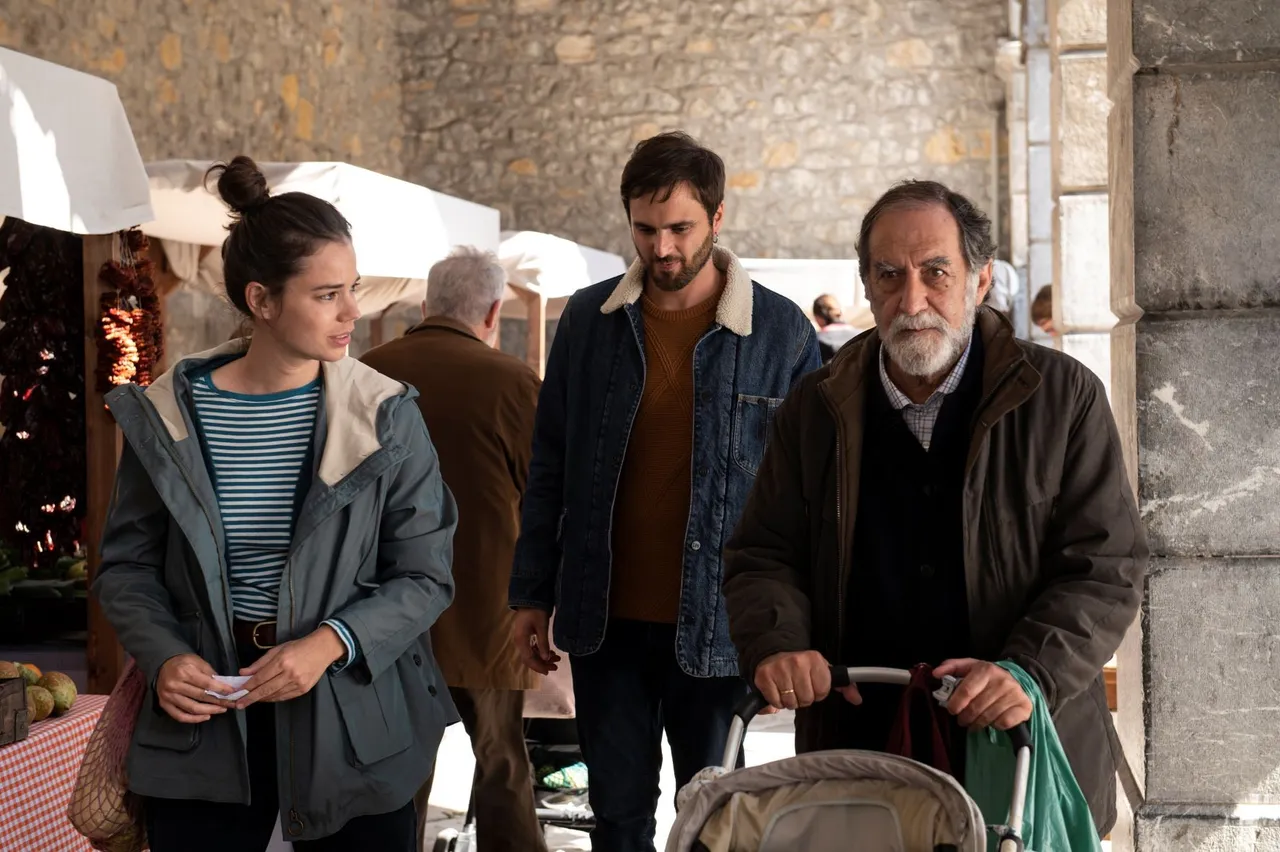

As the days go by, her mother falls ill, so for Amaia, it's not just about raising her daughter, dealing with her absent husband, or with the differences between her parents; but now she must assume a more prominent role as a daughter to care for her mother. In this process, which is a reality for many women, she must learn to balance her life between being a mother and being a daughter.
The film is a mirror of what many women live or have lived, especially when we leave home to make our own lives and then, due to life circumstances, we have to return. It is normal to feel alien to this new life, to this house that although it was the house in which you were raised all your life, it feels like you no longer belong there; however, there are bonds that never break, no matter what: that of father to children, and that of children to father.
While the movie is for everyone's enjoyment, without extreme drama or disturbing elements beyond those that can exist in any average family, I think the story is primarily geared toward connecting with women who have become mothers. Personally, I loved it, the story emotionally connected with me from the first moment, and it's easy to feel identified with Amaia. I'm getting more hooked on productions of this type, the Spanish cinema is definitely growing day by day.
Con el pasar de los días, su madre enferma, así que para Amaia ahora no se trata solo de criar a su hija, lidiar con su marido ausente, o con las diferencias entre sus padres; sino que ahora debe asumir un rol de hija más protagónico para cuidar a su madre. En ese proceso, que es una realidad para muchas mujeres, debe aprender a equilibrar su vida entre ser madre y ser hija.
La película es un espejo de lo que muchas mujeres viven o hemos vivido, sobre todo cuando nos vamos de casa a hacer nuestras vidas y luego por circunstancias de la vida nos toca regresar. Es normal sentirse ajena a esa nueva vida, a esa casa que aunque haya sido la casa en la que te criaste toda la vida, hace mucho que sientes que ya no perteneces allí; sin embargo, hay vínculos que nunca se rompen, pase lo que pase: el de padre a hijos, y el de hijos a padre.
Si bien es una película para el disfrute de todos, sin un drama extremo, ni elementos perturbadores más allá de los que pueden existir en cualquier familia promedio, creo que la historia está orientada a conectar en primera instancia con la mujer hecha madre. A mí en lo particular me encantó, la historia conectó emocionalmente conmigo desde el primer momento, es fácil sentirse identificada con Amaia. Cada vez me enganchan más las producciones de este tipo, definitivamente el cine español se crece día a día.

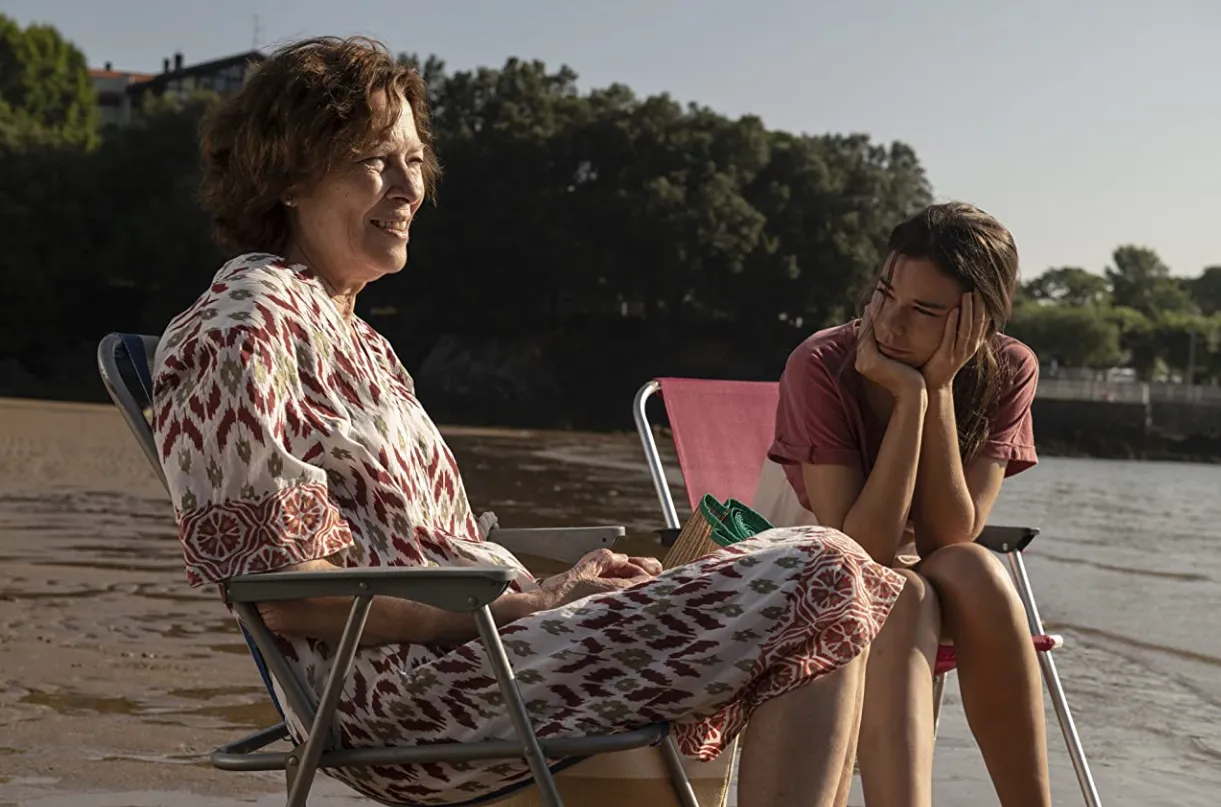

Lullaby / Cinco Lobitos (2022)
Directed by Alauda Ruiz De Azúa
Starring: Laia Costa, Susi Sánchez, Ramón Barea, Mikel Bustamante

